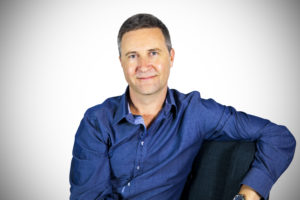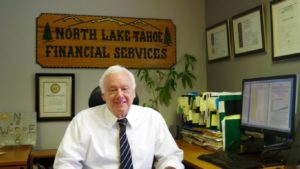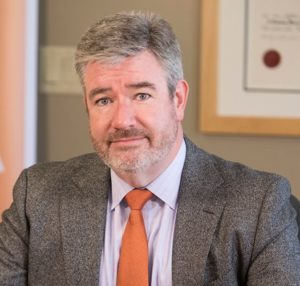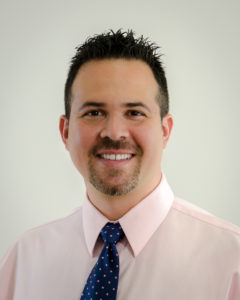Many of us have received financial advice from an older male role model at some point in our lives. While wisdom does come from experience, 96% of people never realize Financial Freedom. So always be careful from whom you take money advice! With this in mind, I asked several people to share the best and worst financial advice they’ve received from a father figure.
 Best Money Advice: The Game of Money is to buy your time back
Best Money Advice: The Game of Money is to buy your time back
“I was very nearly a qualified doctor when my mentor asked if I understood The Game of Money. I looked at people who were 20, 30, 40 years ahead of me and all I could see was high incomes and high amounts of work and high vulnerability. If anything happened to jeopardize that income, the walls would come tumbling down. This advice fundamentally changed my life when I was 24. By the time I was 26 I had retired out of medicine.”
Worst Money Advice: Anything that comes from someone who doesn’t understand you
“There’s so much advice that’s given out like, ‘you’re good at math so you should be an engineer.’ The idea that you should get a job in something that you’re good at, that’s probably some of the worst advice I’ve seen. What I would say is intentionally design your life. Your job is only one-dimensional. The key question to look at is ‘what do you choose to do with your time?’”
Tony Pennells, Founder, MindShift.money
 Best Money Advice: Avoid using a credit card when you can
Best Money Advice: Avoid using a credit card when you can
“My dad is somewhere in the middle of the road when it comes to saving and spending money. I watched him help save his dad from financial ruin for years. His theory is that paying for something in cash helps you to weigh the value of what you’re buying much more, and I believe that he’s right! I’m much more likely to err on the cheap side at happy hour if I know I’m paying with cash!”
Worst Money Advice: Don’t worry About going into debt
“My dad encouraged me to choose any school that I wanted without worrying too much about price, considering himself to be my safety net if I ever needed it. As a result, I’m burdened with some heavy college loans that won’t be paid off for some time. Though I chose a college that was a perfect fit for my personality and offered me a fabulous education, I may have made some different decisions as a 17-year-old if I’d had a better concept of money and spending.”
Leslie Chabala, Music & Computer Science Teacher, Nazareth College & Career Prep
Best Money Advice: Do your research before making a purchase
 “There used to be a life insurance salesman who often visited the campus of the maritime academy, selling policies to the midshipmen. It sounded really great to myself and a friend of mine. We both went home for Christmas break and each of us mentioned it to an uncle. Both uncles had the same advice: ‘As a single person you don’t need life insurance, and there is no reason to pay for it.’ I heard later that several classmates had a bad experience trying to get rid of the policies.”
“There used to be a life insurance salesman who often visited the campus of the maritime academy, selling policies to the midshipmen. It sounded really great to myself and a friend of mine. We both went home for Christmas break and each of us mentioned it to an uncle. Both uncles had the same advice: ‘As a single person you don’t need life insurance, and there is no reason to pay for it.’ I heard later that several classmates had a bad experience trying to get rid of the policies.”
Worst Money Advice: Avoid risk by not investing your hard-earned savings
“I almost bought a piece of real estate in Newport Beach, California, in the mid-70s. It was almost on the sand and would have been a great investment. Maybe I relied too heavily on my father’s advice. He had lived through the Great Depression in his formative years and the idea of putting hard-earned savings into something that might not work out was simply wrong.”
Owen Hill, Owner, North Lake Tahoe Financial Services
Best Money Advice: Don’t spend too much money in the “discovery phase”
 “My father, an engineering professor, had a mantra that might surprise some people: ‘Half of college is figuring out what you don’t want to do. The other half is getting good at what you do want to do.’ He went on to explain that too many young people waste exorbitant sums of money in the first half of that process. College is a great time to learn about oneself and strengthen study habits. Just make sure the credits will transfer efficiently to the institution(s) which will eventually confer the desired baccalaureate degree.”
“My father, an engineering professor, had a mantra that might surprise some people: ‘Half of college is figuring out what you don’t want to do. The other half is getting good at what you do want to do.’ He went on to explain that too many young people waste exorbitant sums of money in the first half of that process. College is a great time to learn about oneself and strengthen study habits. Just make sure the credits will transfer efficiently to the institution(s) which will eventually confer the desired baccalaureate degree.”
Worst Money Advice: Invest only what you can afford to lose
“That is a flawed perspective, probably rooted in my father’s experience of buying individual stocks back in the 1960s and ‘70s. While publicly traded companies do indeed go bankrupt from time to time, investors today are not stuck with a selection of vehicles that have strictly binary outcomes. Diversification is the key, and low-cost ETFs (Exchange Traded Funds) and index mutual funds are a great way for individual investors to get started. The risk of total loss is exceedingly small.
Scott Ehrig, Co-Chief Investment Officer, FMA Advisory

Best Money Advice: Save for a rainy day
“The best financial advice I ever received was from my dad. In addition to working full-time, he also owned property and had a side business as an electrician. That’s where my entrepreneurial spirit comes from. I learned early on how to work hard, save, establish financial goals and invest money wisely. Since I began working at 13 years old as a paperboy, I made sure to have reserves in my savings for emergency purposes. That advice came in handy when I quit my full-time job 12 years ago to go into business for myself. Additionally, like my dad, I also invested in property for my retirement.”
Worst Money Advice: Don’t feel obligated to settle for the first offer
“I worked with a client who would never shop around for the best price. He would always go with the first vendor he contacted with no research. He always felt that everyone would be within the same range and didn’t want to waste any time on getting quotes.”
Daniel Casciato, Freelance Writer
The views and opinions expressed are those of the guest author and do not necessarily reflect the views and opinions of MindShift.money. Some answers have been edited for length and clarity.
image credit: Bigstock/digitalskillet1

